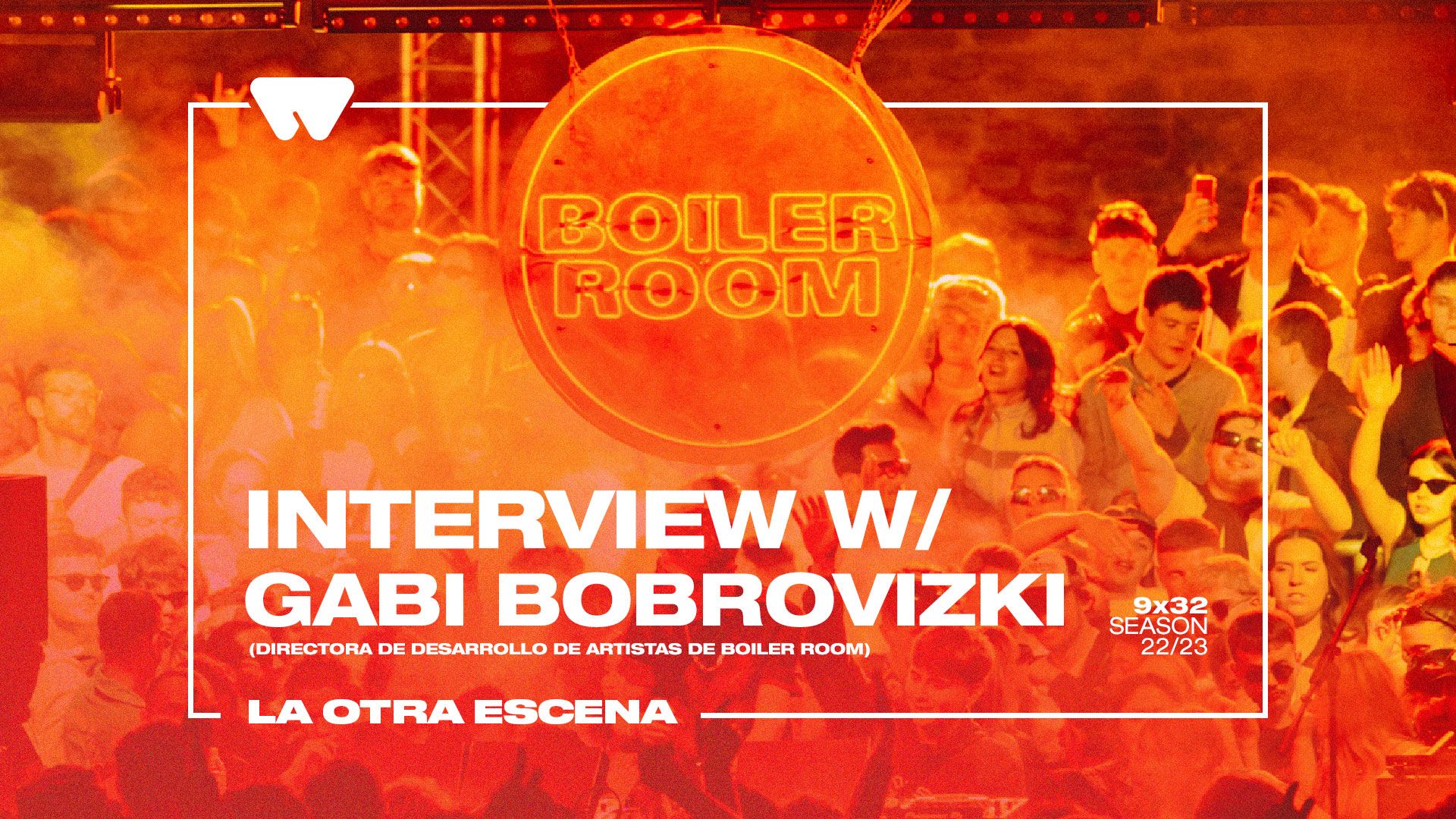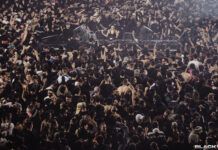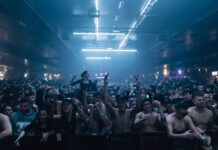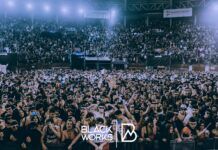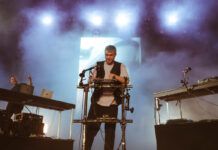La música electrónica y las diversas corrientes artísticas que coexisten hoy en día le deben mucho al crecimiento de Internet, ya que gracias a esto es mucho más fácil llegar a conocer artistas emergentes y consolidar sus proyectos, y a su mismo tiempo continuar agrandando las carreras de los artistas más populares. Dentro de este panorama encontramos a Boiler Room, una marca y plataforma que ha sido muy importante en este progreso, desde su fundación allá por 2010 en Londres. En la entrevista de hoy hablamos con Gabi Bobrovizki, la directora de desarrollo de artistas de Boiler Room, vamos con ella.
Wololo Sound: ¡Hola Gabi! Lo primero de todo, muchas gracias por atendernos en esta entrevista. Nos gustaría comenzar por lo básico, los principios ¿Cómo nació Boiler Room y cómo dirías que ha cambiado Boiler desde sus inicios hasta ahora?
Gabi Bobrovizki: Boiler Room empezó con una webcam pegada a una pared grabando una pequeña fiesta en Londres. Ahora somos una plataforma de alcance global que acoge y retransmite fiestas en todo el mundo.
WS: Hi Gabi! First of all, thank you very much for having us for this interview. We would like to start with the basics, the beginnings. How did Boiler Room start and how would you say it has changed from its early days until now?
GB: Boiler room started with a webcam taped to a wall filming a small party in London. Now we are a platform with global reach hosting and filming parties around the world
WS: Por supuesto, sois una marca intimamente ligada a la música electrónica y la cual ha dado visibilad a muchísimos artistas, colectivos o géneros que no tienen tanto foco de atención. ¿Cómo definirías el papel que ha jugado Boiler Room en el desarrollo de la electrónica a nivel mundial?
GB: Ha dado a artistas menos consolidados una plataforma global, ayudando a colectivos y comunidades a compartir sus sonidos electrónicos, únicos en todo el mundo.
WS: Of course, you are a brand closely linked to electronic music and which has given visibility to many artists, collectives or genres that don’t get as much attention. How would you define the role Boiler Room has played in the evolution of electronic music worldwide?
GB: It has given less established artists a global platform, helping collectives and communities share their unique electronic sounds worldwide.
WS: En los últimos tiempos, hemos visto también una apertura de miras hacia géneros más urbanos. ¿Cómo se llegó a esta decisión para apostar por géneros “no tan clásicos” o electrónicos?
GB: Intentamos representar la diversidad de la cultura de club, que creemos que incorpora más sonidos que la mera música electrónica.
WS: In recent times, we have also seen an open-mindedness towards more urban genres. How did you come to this decision to go for “not so classic” or electronic genres?
GB: We try to represent the diversity in club culture which we feel incorporates more sounds that just electronic music.
WS: ¿Cuál es el proceso de selección de artistas para participar en los sets de Boiler Room y qué buscáis en los artistas emergentes?
GB: Nuestro proceso de selección está descentralizado. Tenemos un canal abierto para que los artistas nos envíen ideas de sus colectivos. También contamos con un sólido equipo interno de dirección artística.
WS: What is the selection process for artists to take part in Boiler Room sets and what do you look for in emerging artists?
GB: Our curation process is decentralized. We have an open channel for artists to send us curatorial ideas involving their communities. We also have a strong in house set of programmers.
WS: Si hay algo que llama la tención de vuestra labor es el gran abanico de opciones que abarca. ¿Cuál es el enfoque de Boiler Room para fomentar la diversidad y la inclusión en la música electrónica, tanto en términos de los artistas que seleccionáis como de los lugares en los que realizáis los eventos?
GB: La programación descentralizada permite a los colectivos contar sus propias historias desde dentro.
WS: What is Boiler Room’s approach to encouraging diversity and inclusivity in electronic music, both in terms of the artists you select and the venues where you hold events?
GB: Decentralized programming means that we allow for communities to tell their own stories from the inside out.
WS: Muchos artistas emergentes ven a Boiler Room como una plataforma para dar a conocer su música y su estilo. ¿Cómo ayuda Boiler Room en el desarrollo de la carrera de los artistas que participan en sus eventos?
GB: Nuestro objetivo es darles acceso a una audiencia mundial con el fin de ayudar a fomentar su crecimiento.
WS: Many emerging artists see Boiler Room as a platform to showcase their music and style. How does Boiler Room help in the career growth of the artists who participate in your events?
GB: Our goal is to give them access to a global audience with the aim to help foster their growth
WS: Si hablamos de Boiler Room, es imposible no hablar del set que realizó Fred Again.. en Londres y el cual se ha convertido en una de las Boiler Room más famosas de vuestra historia. ¿Dirías que tanto por selección musical del set, atmósfera en el club, la magia que tiene esta sesión y la repercusión que obtuvo, es la definición perfecta de lo que pretende ser Boiler Room
GB: Creo que Fred Again.. fue un tipo de experiencia Boiler Room que definitivamente muestra lo que sería sobre un momento histórico de BR, sin embargo, trabajamos con tantos artistas diferentes en tantas partes del mundo, que no sería posible que un solo artista representara lo que somos.
WS: If we talk about Boiler Room, it’s impossible not to talk about Fred Again..’s set in London, which has become one of the most famous Boiler Rooms in your history. Would you say that the musical selection of the set, the atmosphere in the club, the magic of this set and the repercussion it got, is the perfect definition of what Boiler Room is all about? Which are your personal favourites and why?
GB: I think Fred Again.. was one kind of Boiler Room experience that definitely speaks truth to a classic BR moment, however we work with so many different artists across so many parts of the world, that it wouldn’t be possible for one artist to represent what we are about.
WS: Por último, siempre es imprescindible hablar del futuro ¿Qué podemos esperar en los próximos años? ¿Qué consideráis esencial para mantener a largo plazo la autenticidad de la marca?
GB: Hemos racionalizado nuestra producción para centrarnos en la creación de shows más impactantes.
WS: Finally, it’s always essential to talk about the future, what can we expect in the coming years and what do you consider essential to maintain the authenticity of the brand in the long term?
GB: We have streamlined our output to rather focus on creating more impactful shows.


